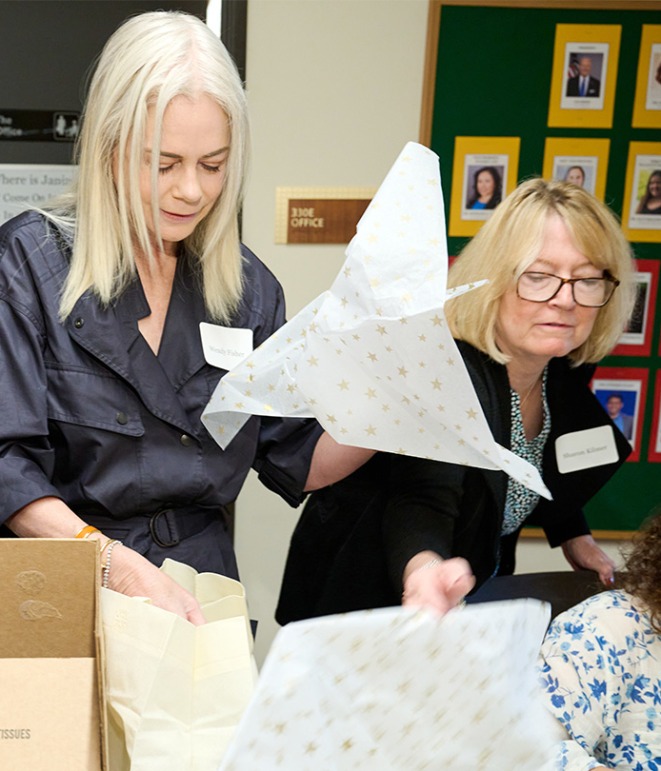“As administrators and higher education professionals, we need to address the issues that are actually facing our students. We need to realize they are not just 18- to 22-year olds with families who are able to financially contribute to their education. We have those students, but also every other kind of student,” said Alejandra Delacruz Hong, EDD ’22, director of SEIP Trojan Success Initiatives.
First-generation, undocumented, former foster youth, transfers, veterans, and military-affiliated students face unique challenges compared with many other segments of USC’s student population. The Veterans Resource Center and First Generation Plus Success Center create a sense of belonging — a place to hang out, do homework, join affinity groups, and provide other resources to improve their mental health and wellbeing. Any USC student who needs food, housing, and economic support can also seek help from Student Basic Needs.
“Launching with a SCervice Day is indicative of our intent to roll up our sleeves and learn firsthand about the many USC programs and initiatives,” said Sharon Kilmer, BA ’80, MBA ’82 and fellow Torch Initiative supporter. “We can understand what is available and what may be lacking in order to determine where our donations can be the most effective.”
SCervice Project participants built 100 care packages filled with snacks and items to boost students through their day along with handwritten notes of encouragement.
“Every student that walks through our doors needs something different, whether that is community or just a welcoming place to process the challenges of the day. We see individual needs change daily and any time we can show the Trojan Family the value of these programs, events, and resources, it makes a big difference,” Hong said.
The Torch Initiative values women’s contributions in various forms — the SCervice Project was just one example of the initiative’s goal to foster meaningful connections among donors and connect with students.
That’s why Faillace, whose career was in investment management, a primarily male-dominated industry, wanted to be a part of the Torch Initiative from the beginning.
“I want to be able to inspire other female alums to give as well and show how vital women are to the USC community and its future success,” Faillace said. “Female alumnae from USC are doing amazing things, and the Torch Initiative is an opportunity for women to share their success by giving back to USC.”
Kilmer agrees that the initiative can be a catalytic force to uplift the school’s top priorities through leadership and philanthropic action at USC Marshall.
“We collectively hope to make an impact in specific areas in more visible ways that incorporate high standards of accountability and that result in demonstrable outcomes,” Kilmer said.
Their efforts have already paid off. Several of the attending students connected with donors who attended the event and may be receiving help securing an internship. For Hong, that give-back is what it’s all about.
“Seeing a student who can say ‘this is who I am and these are my experiences’ and have someone see what we get to see every day, and trust and believe in them the way that we do, is just so rewarding.”
Fostering this type of holistic approach to philanthropy and direct impact by supporting priorities at USC is exactly what the Torch Initiative aims to do.





